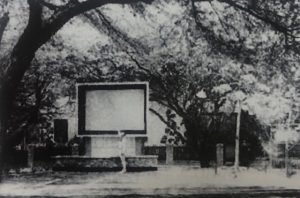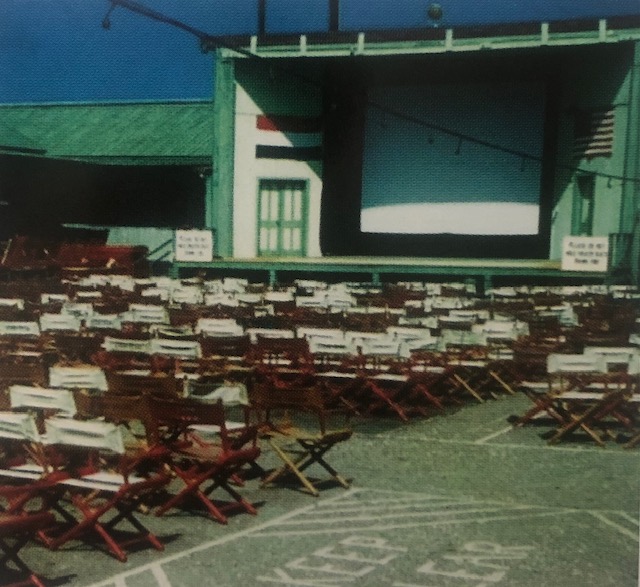(Oranjestad)—During the span of over 100 years, Aruba only saw five open air movie theaters. Now practically obsolete on the island, these theaters were once frequently visited by locals and migrants in the 20th century.

The first open air theater was constructed in 1920 and was commissioned by Shon Eduard (Eddy) de Veer. This theater was located at the Hotel Colombia in Oranjestad, which is now where the Aruban census office is located. The theater was simple; it only consisted of a screen, and visitors had to bring their own chairs to enjoy the popular silent movies of the time.
American migrants who worked in the refinery and lived in the Lago Colony in Sero Colorado also had their piece of the pie with their Open air Theatre, which formed part of the Esso Club, also known as the Pan-Am Club. It was at this theater that “Talkies” were first streamed, movies with sound. This theater mostly streamed American blockbusters for the American expats, this way making sure that these migrant were not missing out on entertainment from their home land.
In the 1950’s and 60’s, Savaneta saw their own open air theater, located in front of the Marinier’s Kazerne (Marine Barracks). This theater was mostly visited by the neighboring marines, who didn’t have much entertainment other than movies at that time.
The last and most recent open air theater was constructed in the form of a drive-in theater. A popular American concept, the Drive Inn located in Balashi was a hot spot for teenagers, who had the habit of cramming all their friends in one car to go see the movies. For this phenomenon there was a separate price that you had to pay called the “car crash”.
This theater closed around 2012, but was re-opened during the pandemic in July 2020, where movies were streamed on a gigantic screen set up in front of stacked containers. However, this nostalgic form of entertainment did not last very long as it was closed again only a year or two later. Nowadays you can still see the stacked containers when you drive near the bridge in Balashi.
Source: “De kolibrie op de rots en meer over de geschiedenis van Aruba” by Evert Bongers.




















